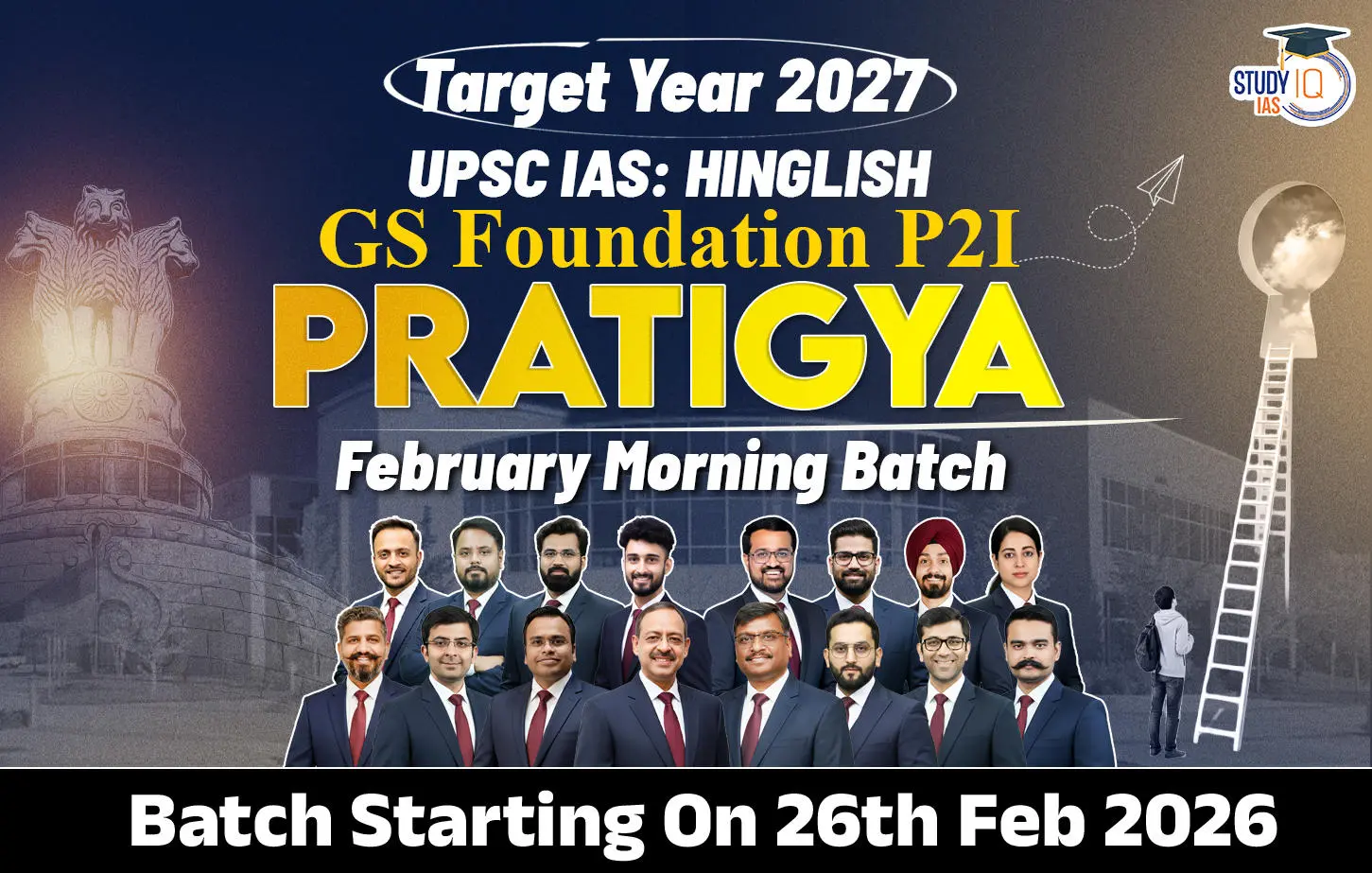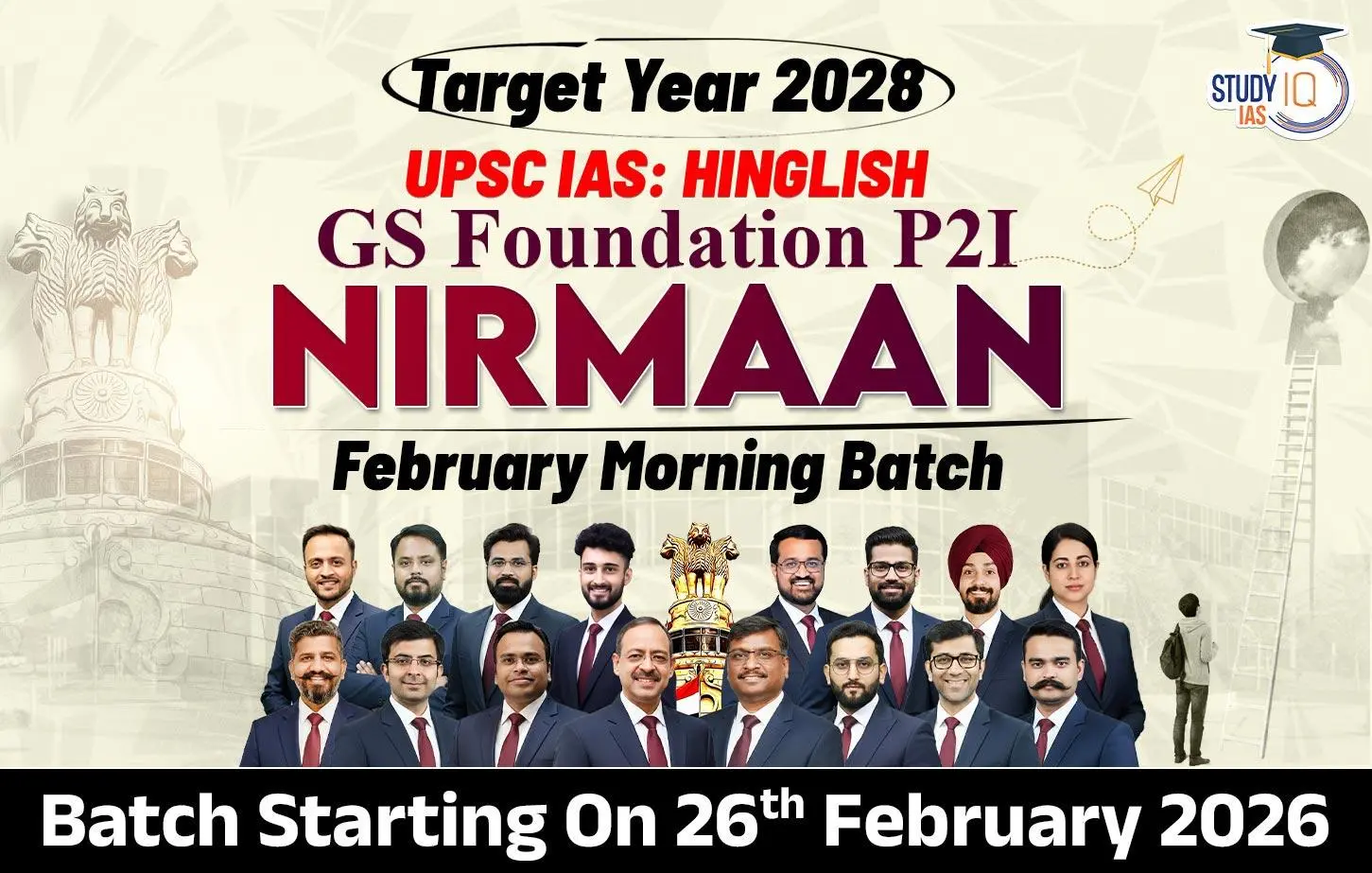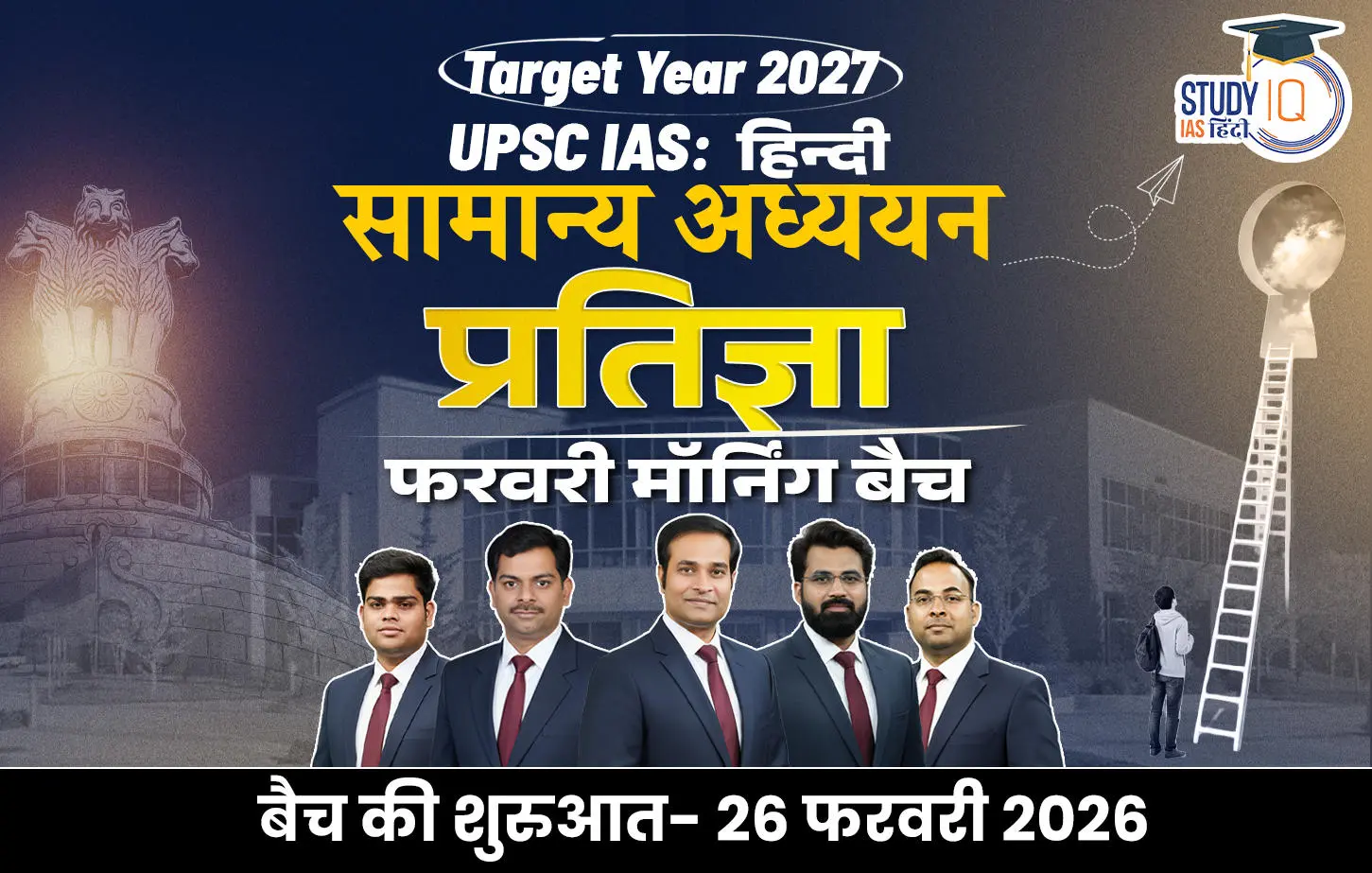Table of Contents
Context: Some from the ruling party have questioned why the Opposition has not formally moved the Supreme Court regarding electoral roll concerns. Opposition reluctance is linked to recent developments in the legal and institutional framework governing the appointment of Election Commissioners.
The appointment process of election commissioners (ECs) has been questioned for years, raising serious concerns about the autonomy and impartiality of this vital institution.
Process of Appointment of Election Commissioners (CEC and ECs)
| Aspect | Old Procedure | SC Verdict (Anoop Baranwal vs Union of India) 2023 | New Law |
| Appointment Process | Appointed by the President on the advice of the Union Council of Ministers, usually suggested by the Law Minister and the Prime Minister. | SC ordered that the Chief Election Commissioner (CEC) and Election Commissioners (ECs) shall be appointed on the advice of a committee comprising the Prime Minister, Leader of Opposition in Lok Sabha and Chief Justice of India. | Appointed by the President based on the recommendation of a Selection Committee comprising the Prime Minister, a Union Cabinet Minister, and the Leader of Opposition or leader of the largest opposition party in Lok Sabha. |
| Selection Committee | Not specified. | Prime Minister, Leader of Opposition in Lok Sabha and Chief Justice of India. | Includes the Prime Minister, a Union Cabinet Minister, and the Leader of Opposition/leader of the largest opposition party in Lok Sabha. |
| Search Committee | Not specified. | A Search Committee led by the Cabinet Secretary will recommend a panel of names to the Selection Committee. | |
| Salary and Conditions | Equivalent to a Supreme Court Judge. | Made equivalent to that of the Cabinet Secretary. | |
| Removal Process | The CEC could be removed in a manner similar to a Supreme Court judge. ECs could be removed on the CEC’s recommendation. | Retains the constitutional provision for CEC’s removal like a Supreme Court Judge. ECs can only be removed on the recommendation of the CEC. |
Challenges in the Appointment Process of Election Commissioners
- Lack of Institutional Independence: The executive dominates the selection panel, affecting the neutrality of the ECI.
- The 2023 Act replaced the CJI with a Union Minister, giving the ruling party greater control.
- Violation of Supreme Court’s Spirit: SC’s 2023 ruling recommended a balanced committee (PM, LoP, and CJI) until Parliament passed a law.
- The new law overturned the spirit of the ruling, leading to concerns over executive overreach.
- Delay in Judicial Review: Despite the ADR’s legal challenge, the SC did not grant an interim stay, allowing fresh appointments under the new law.
- The hearing on February 19, 2025, was adjourned without a new date, leaving uncertainty over the legitimacy of the appointments.
- Lack of Transparency: The current selection process lacks public scrutiny and institutional checks.
- No parliamentary oversight or independent review mechanism exists.
- Public Perception and Credibility Issues: Optics matter in democracy—any perception of bias undermines the credibility of elections.
- The ECI’s independence must not only exist but be visible to maintain public trust.
- Global Best Practices Ignored: Other democracies have more transparent, bipartisan, and institutionally balanced selection processes.
- India’s model remains opaque and politically controlled, despite being a leading democracy.
Global Best Practices in EC Appointments
- United States: The President appoints commissioners with the advice and consent of the Senate.
- South Africa: The President appoints ECs based on the recommendation of the National Assembly.
- Brazil: ECs are appointed by the Federal Supreme Court.
- United Kingdom: Appointments are made by the Speaker’s Committee on the Electoral Commission, which has cross-party membership.
- France: ECs are appointed jointly by the President, legislature, and judiciary.
- Nepal: The President appoints ECs based on recommendations by the Constitutional Council, followed by a parliamentary hearing.
Appointment of Election Commissioners: Background
- Part XV (Article 324-329) of the Indian Constitution: It deals with elections and establishes a commission for these matters.
- Originally, the commission had only one election commissioner, but after the Election Commissioner Amendment Act 1989, it was made a multi-member body.
- Presently, the Election Commission of India (ECI) is a three-member body, with a CEC and two ECs.
- Appointment: Article 324(2) of the Constitution, the President is empowered to appoint the CEC and ECs.
- The Constitution does not lay down a specific legislative process for the appointment of the CEC and ECs.
- The President makes the appointment on the advice of the Union Council of Ministers headed by the Prime Minister.
- Tenure: They have a fixed tenure of six years, or up to the age of 65 years, whichever is earlier.
- They enjoy the same status and receive salary and perks as available to Judges of the Supreme Court (SC) of India.
- Removal: CEC can be removed from office only through a process of removal similar to that of a SC judge by Parliament.
- However, no such protection of tenure is currently available to the Election Commissioners.
Powers Of the Election Commission
The whole election machinery is in the hands of a Central Election Commission, which alone would be entitled to issue directives to returning officers, polling officers and others.
- Parliament enacted The Representation of the People Act, 1950, and The Representation of the People Act, 1951, to define and enlarge the powers of the Commission.
- Supreme Court in ‘Mohinder Singh Gill & Anr vs The Chief Election Commissioner, New Delhi and Ors’ (1977) held that Article 324 “operates in areas left unoccupied by legislation and the words ‘superintendence, direction and control’ as well as ‘conduct of all elections’ are the broadest terms”.
- It said Article 324 “is a plenary provision vesting the whole responsibility for national and State elections” in the ECI, and, therefore, the necessary powers to discharge that function.
- Election Commission (Conditions of Service of Election Commissioners and Transaction of Business) Act, 1991: It gave the CEC a status equal to that of a Supreme Court judge, and his retirement age was fixed at 65 years.
Constitutional Provisions for ECI
- Part XV (Article 324-329) of the Indian Constitution: It deals with elections and establishes a commission for these matters.
- Article 324: Superintendence, direction and control of elections to be vested in an Election Commission.
- Article 325: No person to be ineligible for inclusion in, or to claim to be included in, a special electoral roll on grounds of religion, race, caste or sex.
- Article 326: Elections to the House of the People and to the Legislative Assemblies of States to be based on adult suffrage.
- Article 327: Power of Parliament to make provision concerning elections to the Legislatures.
- Article 328: Power of Legislature of a State to make provision concerning elections to such Legislature.
- Article 329: Bar to interference by courts in electoral matters.
Need to Restore Judicial Safeguards in ECI Appointments
The 2023 Act
- The Chief Election Commissioner and Other Election Commissioners (Appointment, Conditions of Service and Term of Office) Act, 2023, was enacted to override the Supreme Court’s ruling in Anoop Baranwal v. Union of India (2023).
- The Act removed the Chief Justice of India (CJI) from the ECI Selection Committee and replaced him with a Cabinet Minister nominated by the Prime Minister.
- This strengthened executive control over appointments.
Judicial Developments
- The Act was legally challenged through multiple writ petitions.
- Petitioners sought a stay, but in Jaya Thakur v. Union of India (2024), the Supreme Court refused, citing the presumption of validity of statutes.
- As a result, the 2024 Lok Sabha elections and subsequent Assembly polls were conducted under the ECI shaped by the 2023 Act.
Why this matters
- In Anoop Baranwal, the Constitution Bench had stressed the need to take appointments out of the exclusive control of the executive to ensure free and fair elections.
- The judgment recognised that a pliant ECI could undermine democracy by favouring those in power.
- By not staying the 2023 law, the Supreme Court effectively weakened its own precedent and allowed an ECI “under the thumb of the executive.”
Comparative Perspective
- Globally, scholars (Landau & Dixon, 2020) have noted how courts sometimes aid authoritarian regimes by legitimising manipulations before elections.
- Countries like Venezuela and Bolivia saw courts facilitating electoral fraud, whereas rare instances of vigilance, like Anoop Baranwal, show the judiciary safeguarding democracy.
Fourth Branch Institutions
- Modern Constitutions (e.g., South Africa) create independent “fourth branch” bodies like electoral commissions to strengthen democracy.
- India’s Constitution is silent, but the Baranwal verdict was an example of creative interpretation to fill this gap.
- Parliament’s 2023 Act rolled back this safeguard, and the Court’s refusal to intervene compounded the setback.
Way Forward
Restoring democracy requires:
- Reinstating the Baranwal principle (CJI in the Selection Committee).
- Nullifying the 2023 Act.
- Establishing a truly independent ECI capable of investigating electoral irregularities as a “Truth Commission.”
- Embracing a bipartisan and neutral collegium-based appointment system would strengthen the ECI’s independence.
- Drawing inspiration from global best practices can help ensure credibility and fairness in India’s election process.
- The future of electoral democracy in India depends on addressing these concerns with judicial intervention, public pressure, and political will.

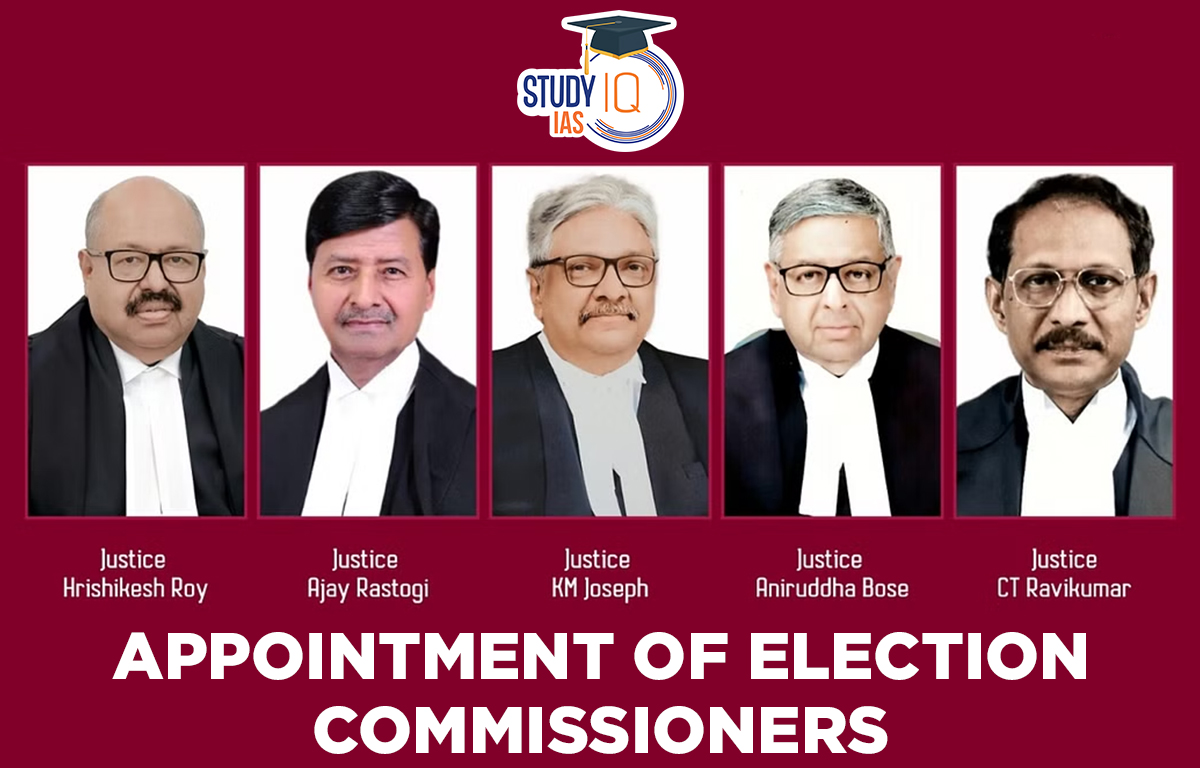
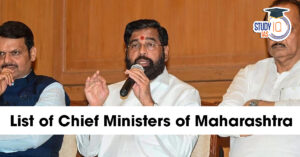 List of Chief Ministers of Maharashtra F...
List of Chief Ministers of Maharashtra F...
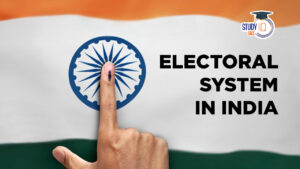 Electoral System in India 2026: SIR Upda...
Electoral System in India 2026: SIR Upda...
 SLAPP Suits: Meaning, Examples, Impact o...
SLAPP Suits: Meaning, Examples, Impact o...
